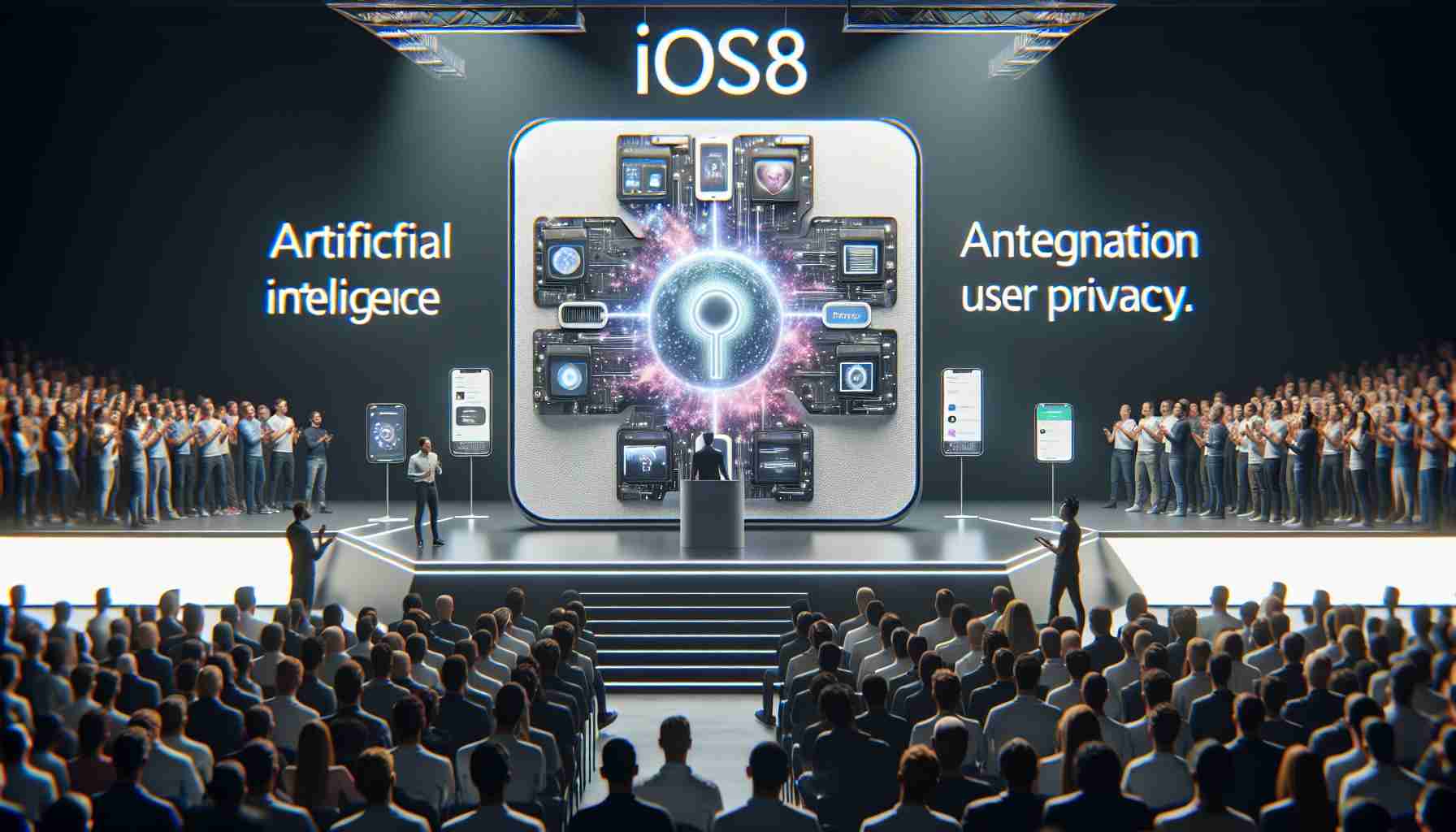Apple unveils its proprietary AI during WWDC, marking a new era for user data privacy and AI applications. Tim Cook, CEO of Apple, proudly introduced what can be described as a revolutionary leap in AI that assures users’ data will not be stored by Apple or anyone else, and is strictly based on user commands accompanied by stringent verification methods.
The transformation of Siri into a smarter assistant has been noted as a significant highlight. Now, Siri can collaborate with ChatGPT to enhance its responses. When Siri alone isn’t enough, it can enlist the impressive capabilities of ChatGPT, with user permission, to provide even better answers to queries, whether it’s about crafting recipes with available ingredients or getting plant suggestions for a balcony image.
Apple’s strategic focus on Apple Intelligence signifies its next major thrust in technological innovation. This development is deeply integrated into the new iOS 18, enhancing the potency, intuition, and personalized experience of the operating system. Apple’s AI expertise spans language understanding, image handling, cross-application commands, and personalized interactions.
An exciting announcement was the synergy with OpenAI’s ChatGPT. This partnership opens doors to sophisticated communication through large language models, which could significantly reorder notifications based on importance, ensuring priority messages don’t get buried under a sea of ads.
Moreover, iOS 18 introduces the ‘Writing Tools’ feature accessible across mail, notes, Pages, and third-party apps, allowing users the flexibility to rewrite, proofread, and summarize text in various tones, from professional to casual or concise. Additionally, the ‘Image Playground’ feature empowers users to create fun and unique graphical content within messages or other apps quickly.
Apple’s Intelligence will also enable device-wide personalized features, like schedule coordination involving meetings and family commitments, exemplifying how it can integrate information to streamline the user experience. Furthermore, with its ability to process 1.5 billion user requests daily, Siri has evolved to be more natural, more relational, and more personal.
Apple’s focus on privacy with AI integration represents a significant differentiation in the market, especially when compared to rivals like Google and Amazon, which have faced criticism for their data handling practices. Apple’s commitment to user privacy has long been a cornerstone of its brand identity, and the latest AI features in iOS 18 underscore this philosophy. As AI becomes more ubiquitous, privacy concerns escalate; thus, Apple’s approach could be a major selling point for privacy-conscious consumers.
The collaboration between Siri and ChatGPT is a significant development for Apple’s voice assistant, which has traditionally lagged behind Google Assistant and Amazon’s Alexa in terms of intelligence and versatility. By leveraging OpenAI’s language model, Siri’s capabilities are greatly enhanced, potentially shifting competitive dynamics in the market for smart assistants.
An important question to consider is how Apple will maintain the privacy of user data while integrating with ChatGPT, which typically requires data to be processed on servers. Another critical question is how data will be secured during this interaction to prevent unauthorized access or leaks.
There could be key challenges associated with ensuring that language models understand the nuances of human language and effectively handle the context. Moreover, as AI models become more advanced, there’s the threat of misinformation or bias within the AI itself, which companies like Apple need to vigilantly guard against.
Advantages of Apple’s strategy include enhanced user experience, greater personalization, and sticking to the company’s reputation for securing user privacy. On the other hand, disadvantages may include the complexities involved in maintaining privacy when working with third-party AI models, as well as potential limitations on AI functionality to comply with privacy standards.
Regarding controversies, Apple partnering with an external entity like OpenAI might raise concerns among those who feel uneasy about third-party collaborations and the potential implications for Apple’s tight-knit ecosystem.
Related and trustworthy resources can be found on the main websites of the involved companies, such as:
– Apple
– OpenAI
Keeping these factors and related questions in mind, users, developers, and industry experts will need to closely monitor the practical implications of Apple’s AI and privacy commitments as iOS 18 rolls out to the public.
The source of the article is from the blog lanoticiadigital.com.ar
